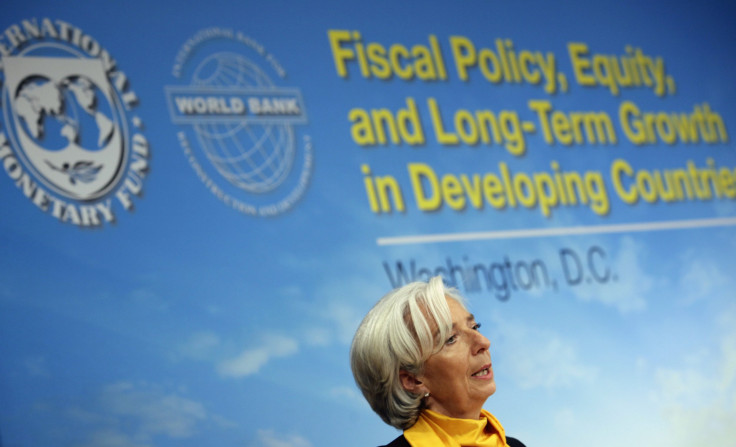National Debt: Tax Or Tithe It Away The International Monetary Fund Suggests

As global public debt ticks up by about $500,000 every second and creeps its way to $52 trillion globally, different countries have taken different approaches to address their financial burden. Most have launched drastic austerity programs and slashed public spending and services, others have boosted public spending in an attempt to create jobs and grow their economy.
However, hidden at the bottom of an International Monetary Fund report released on Tuesday lies a suggestion that could have huge consequences for government treasuries and taxpayers all over the world. The international body has proposed that a one-off capital levy tax of 10 percent on all households could alleviate the last six years of financial hardship for many countries and take governments' debt back to 2007 levels around $30 trillion.
The idea at the moment is designed to restore debt sustainability, which could relieve pressure on future bailouts and may even get rid of them altogether if the tax levy was to be used in times of financial hardship, but the report suggests the public might be in favor if it were a one-off tax levy that was used sparingly and resulted in regulatory changes.
Capital levies have been tried before and have generally been very unsuccessful. Adopted after World War I and World War II in parts of Europe, as well as in Japan in the 1990s, their slow rollout allowed for capital flight to take place, which created inflation and reduced the value of currency in the countries that attempted it.
According to the report, the conditions for success are strong today but “also need to be weighed against the risks of the alternatives, which include repudiating public debt or inflating it away.”
“Is the European Union contemplating taking down or dismantling the TBTF (too big to fail) banks to lower systemic risk? Not at all,” said Fabrice Drouin Ristori, founder and CEO of Malta-based FDR capital. “Is the IMF demanding, as counterparty, that the states slim down and balance their budgets? Ditto. They’re just trying to plug a hole that’s getting deeper and deeper.”
© Copyright IBTimes 2024. All rights reserved.












